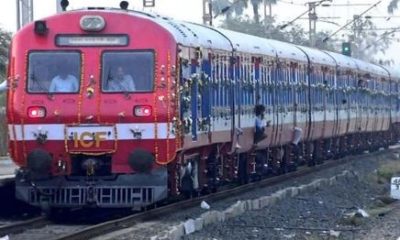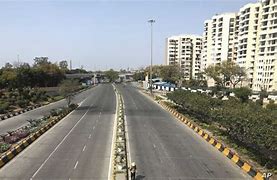Feature
Note ban a Modi-made disaster, says Rahul
Belagavi: Terming note ban a (Prime Minister Narendra) Modi-made disaster for the country, Congress Vice President Rahul Gandhi on Saturday accused the NDA government of aiding the rich at the cost of the poor through demonetisation.
“Demonetisation, which was meant to curb black money and root out corruption, is a Modi-made disaster, as over 100 people died standing in queues at banks for a few notes across the country,” said Gandhi at a public meeting in this Karnataka town, about 500 km from Bengaluru.
Addressing a huge rally to mark the birth centenary of former Prime Minister and his grandmother Indira Gandhi, Gandhi said only the rich had benefitted from the note ban at the cost of the poor, farmers and labourers in millions across the country.
“The Modi government came to power in the name of the poor but is sounding death knell to the hapless population to help about 50 super rich families. Who are these families holding most of the wealth in the country? You can see them touring foreign countries with Modi at the government cost. This is your Prime Minister whom you had reposed hopes of bettering your lives,” he alleged.
Noting that Modi failed to realise that black money hoarders invest their ill-gotten wealth in real estate, gold and in foreign banks, Gandhi said a mere six per cent of unaccounted wealth was in cash while 94 per cent was either deposited in Swiss banks or in real estate.
“Unfortunately, in the name of the poor, honest and tax-paying people, Modi is going after them and ignoring the remaining 94 per cent,” he said. Remembering his grandmother on the occasion, Gandhi also said he was sad over the plight of the ordinary people facing hardship due to cash crunch for over a month.
“I want to ask Modiji why his government had not disclosed names of those who had stashed their black money in Swiss banks even after its government gave the list. Why he is not acting against crooks like Lalit Modi and liquor baron Vijay Mallya, who are staying in London?” asked Gandhi in his speech in Hindi.
Entertainment
Meghalaya Reserves Legalized Gambling and Sports Betting for Tourists

The State Scores Extra High on Gaming-Friendly Industry Index
Meghalaya scored 92.85 out of 100 possible points in a Gaming Industry Index and proved to be India’s most gaming-friendly state following its recent profound legislation changes over the field allowing land-based and online gaming, including games of chance, under a licensing regime.
The index by the UK India Business Council (UKIBC) uses a scale of 0 to 100 to measure the level of legalisation on gambling and betting achieved by a state based on the scores over a set of seven different games – lottery, horse racing, betting on sports, poker, rummy, casino and fantasy sports
Starting from February last year, Meghalaya became the third state in India’s northeast to legalise gambling and betting after Sikkim and Nagaland. After consultations with the UKIBC, the state proceeded with the adoption of the Meghalaya Regulation of Gaming Act, 2021 and the nullification of the Meghalaya Prevention of Gambling Act, 1970. Subsequently in December, the Meghalaya Regulation of Gaming Rules, 2021 were notified and came into force.
All for the Tourists
The move to legalise and license various forms of offline and online betting and gambling in Meghalaya is aimed at boosting tourism and creating jobs, and altogether raising taxation revenues for the northeastern state. At the same time, the opportunities to bet and gamble legally will be reserved only for tourists and visitors.
“We came out with a Gaming Act and subsequently framed the Regulation of Gaming Rules, 2021. The government will accordingly issue licenses to operate games of skill and chance, both online and offline,” said James P. K. Sangma, Meghalaya State Law and Taxation Minister speaking in the capital city of Shillong. “But the legalized gambling and gaming will only be for tourists and not residents of Meghalaya,” he continued.
To be allowed to play, tourists and people visiting the state for work or business purposes will have to prove their non-resident status by presenting appropriate documents, in a process similar to a bank KYC (Know Your Customer) procedure.
Meghalaya Reaches Out to a Vast Market
With 140 millions of people in India estimated to bet regularly on sports, and a total of 370 million desi bettors around prominent sporting events, as per data from one of the latest reports by Esse N Videri, Meghalaya is set to reach out and take a piece of a vast market.
Estimates on the financial value of India’s sports betting market, combined across all types of offline channels and online sports and cricket predictions and betting platforms, speak about amounts between $130 and $150 billion (roughly between ₹9.7 and ₹11.5 lakh crore).
Andhra Pradesh, Telangana and Delhi are shown to deliver the highest number of bettors and Meghalaya can count on substantial tourists flow from their betting circles. The sports betting communities of Karnataka, Maharashtra, Uttar Pradesh and Haryana are also not to be underestimated.
Among the sports, cricket is most popular, registering 68 percent of the total bet count analyzed by Esse N Videri. Football takes second position with 11 percent of the bets, followed by betting on FIFA at 7 percent and on eCricket at 5 percent. The last position in the Top 5 of popular sports for betting in India is taken by tennis with 3 percent of the bet count.
Local Citizens will Still have Their Teer Betting
Meghalaya residents will still be permitted to participate in teer betting over arrow-shooting results. Teer is a traditional method of gambling, somewhat similar to a lottery draw, and held under the rules of the Meghalaya Regulation of the Game of Arrow Shooting and the Sale of Teer Tickets Act, 2018.
Teer includes bettors wagering on the number of arrows that reach the target which is placed about 50 meters away from a team of 20 archers positioned in a semicircle.
The archers shoot volleys of arrows at the target for ten minutes, and players place their bets choosing a number between 0 and 99 trying to guess the last two digits of the number of arrows that successfully pierce the target.
If, for example, the number of hits is 256, anyone who has bet on 56 wins an amount eight times bigger than their wager.
























